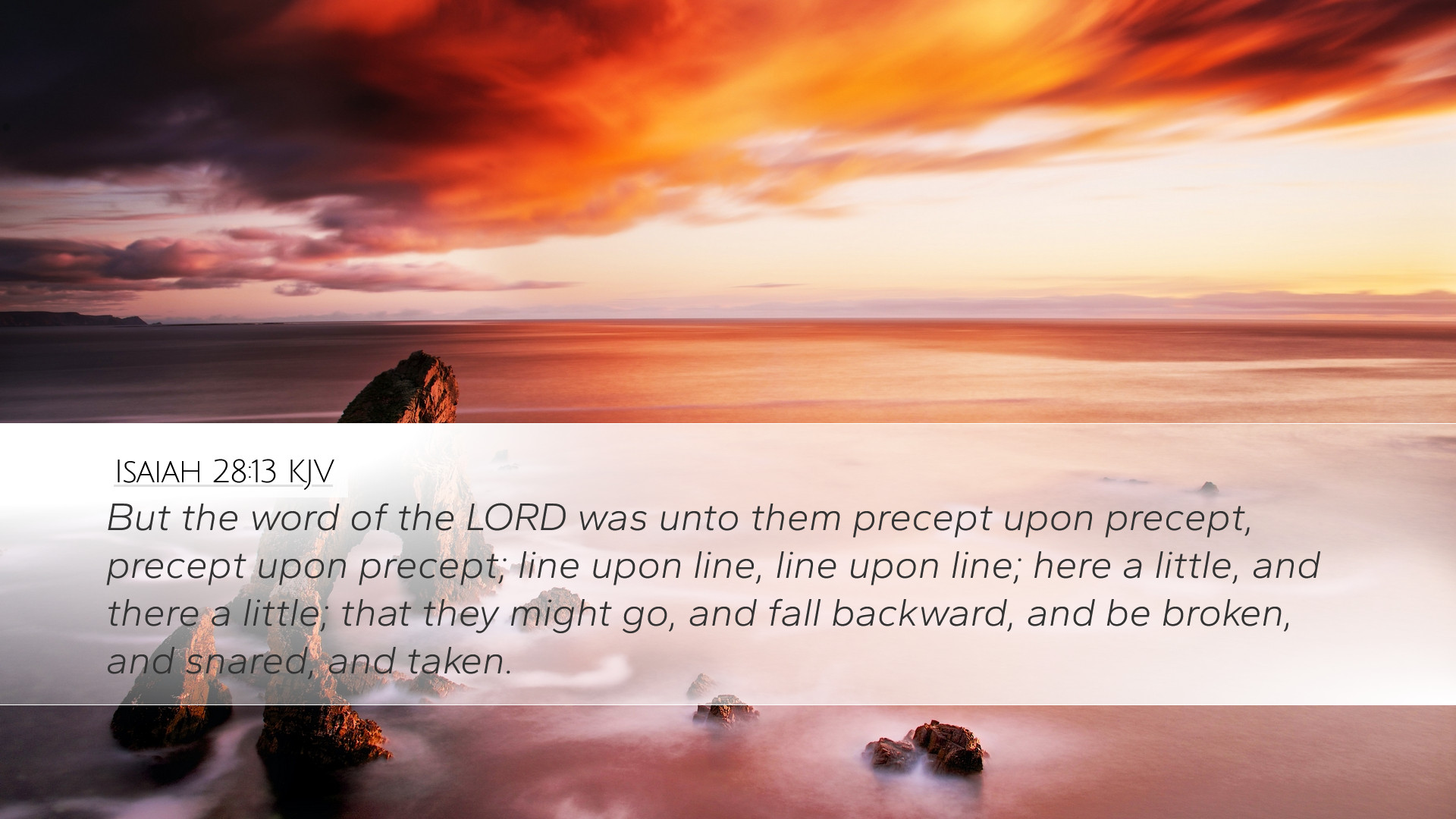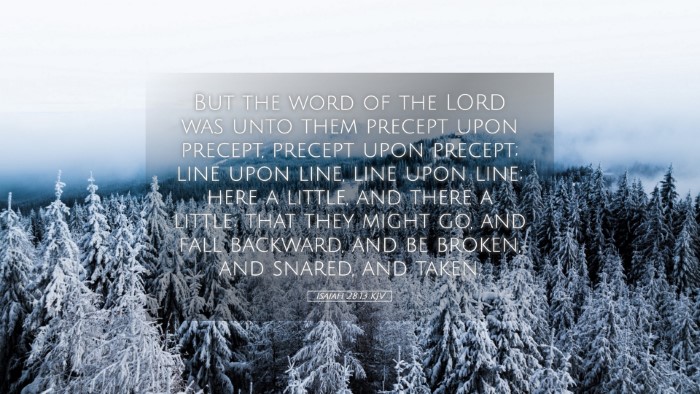Commentary on Isaiah 28:13
Verse Context: Isaiah 28:13 states, "But the word of the LORD was unto them precept upon precept, line upon line, here a little, and there a little; that they might go, and fall backward, and be broken, and snared, and taken." This verse is part of a larger discourse in Isaiah where the prophet critiques the leaders of Israel for their negligence of God's true teachings.
Insights from Public Domain Commentaries
Matthew Henry's Commentary
Matthew Henry interprets this verse as illustrating the method in which God speaks to His people. He points out that the divine instruction comes in fragments, which may seem trivial to the unlearned, but together they form a rich tapestry of wisdom. Henry emphasizes the consequence of rejecting such wisdom: the people, rather than being built up, are destined to fall back into destruction.
- Divine Instruction: Henry notes that God’s word, delivered "line upon line," conveys the necessity of careful and methodical engagement with Scripture. Such a pattern encourages gradual learning and understanding.
- Rejection Leads to Downfall: The phrase "they might go, and fall backward" serves as a prophetic warning. It denotes not merely a fall into sin, but a significant spiritual regression resulting from ignoring God’s directives.
Albert Barnes' Commentary
Albert Barnes elaborates on the implications of the prophetic message, discussing how the phrase "precept upon precept" indicates a layered understanding of God’s law. Barnes stresses that this method should assist in spiritual growth; however, when the people neglect it, they become ensnared by their own pride and foolishness.
- Spirit of Instruction: Barnes highlights that God’s teaching style is deliberate. Each precept builds upon the last, offering a comprehensive grasp of divine truth that is often ignored.
- Eternal Consequences: The consequence of disregarding divine wisdom is severe, leading not only to national calamity but also to personal spiritual blindness.
Adam Clarke's Commentary
Adam Clarke approaches Isaiah 28:13 by focusing on the imagery presented in the verse. He notes that God’s teaching methods may appear simplistic or unpalatable to those who pride themselves on intellectual learning. Clarke articulates the frustration of the prophet as he sees the people stumbling in their understanding.
- Metaphorical Understanding: Clarke interprets the “line upon line” metaphor as a divine strategy to illustrate how divine principles must be built systematically. He encourages pastoral leaders to employ similar methods in teaching their congregations.
- Tragedy of Rejection: Clarke warns that the refusal to heed these teachings results in being "snared," indicating a severe and often irreversible spiritual condition.
Application and Reflection
The various perspectives from these commentaries offer rich insights for pastors, students, theologians, and Bible scholars. Each commentator reinforces the idea that the neglect of God’s instruction results in spiritual decline. The phrase "precept upon precept" serves as a reminder that understanding God's Word is not merely an academic exercise but a spiritual necessity.
For Pastors and Leaders
Pastors must recognize their role in communicating the Scriptures clearly and coherently. Teaching should not be overwhelming; rather, it should build incrementally, engaging the congregation in a manner that fosters understanding and application.
For Students and Scholars
Students of the Bible should approach Scripture with humility, recognizing that God's ways are often beyond human comprehension. The richness of God's Word is revealed progressively, and serious study must be accompanied by prayer and reflection.
Conclusion
Isaiah 28:13 serves as a pivotal reminder of the importance of not merely hearing the Word but deeply absorbing and applying its teachings. The commentaries collectively warn against the tragic consequences of neglecting God’s wisdom, urging all listeners to heed the divine call for spiritual growth through careful engagement with Scripture.


